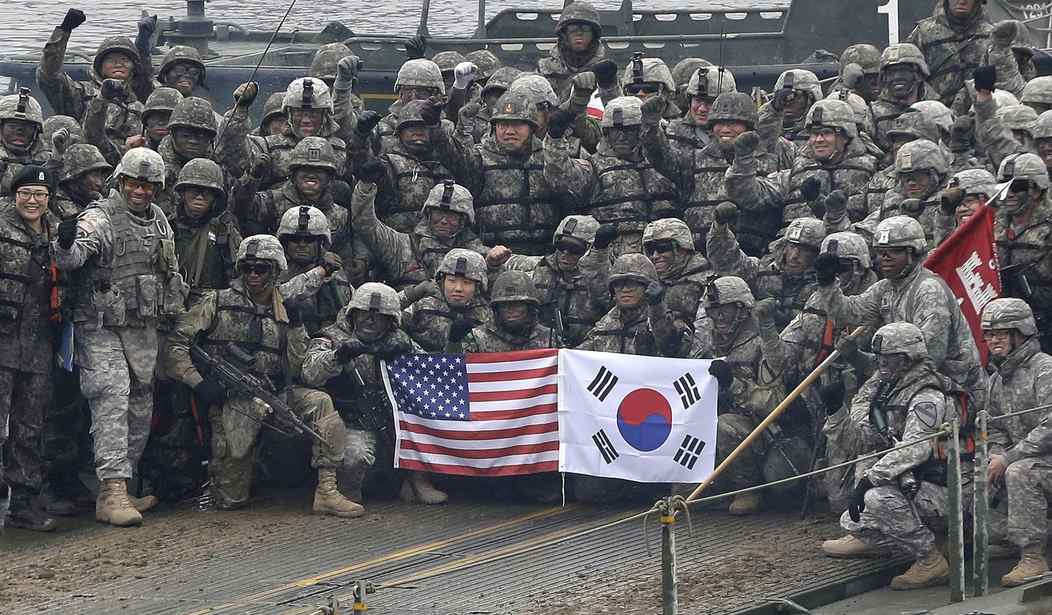I arrived in Seoul on the same day as Secretary of State Mike Pompeo after the Singapore Summit. In the wake of the meeting between President Trump and North Korean leader Kim Jong Un, Pompeo and I had essentially the same task: reassuring our allies.
Of course, he did it with high-level government officials, and I did it unofficially with many contacts who are journalists, business leaders and academics. But they all had at least one thing in common: concerns about President Trump’s announcement that we’d be stopping “war games” in the region.
Although he didn’t expressly say so, this is an apparent reference to the joint military exercises that we regularly conduct with South Korean military forces.
Some of these “war games” are quite large, such as the Ulchi Focus Guardian, which takes place in the fall and involves around 20,000 U.S. personnel, while others are field training exercises by a U.S. battalion or squadron.
Pyongyang, of course, hates these exercises, and has regularly called for them to be halted. North Korean officials often make this request a condition of stopping nuclear tests, as they did as recently as 2015.
In January of that year, they called on the U.S. to ease tensions on the peninsulaby “temporarily suspending joint military exercises in and around South Korea this year, and [in return] the DPRK [Democratic People’s Republic of Korea] is ready to temporarily suspend the nuclear test over which the U.S. is concerned.”
So we’ve been down this road before. We said no in 2015. We should say no now.
Recommended
For one thing, the exercises are necessary if we’re to continue honoring our long-standing commitment to our South Korean allies. They “ensure that U.S. and South Korean forces, as well as select allied forces who are part of the United Nations Command, are able to work seamlessly together to defend South Korea from attack,” writes Thomas Spoehr, a former Pentagon official with more than 36 years of U.S. Army experience.
North Korean officials, in their usual blustery, bellicose fashion, refer to these exercises as “dress rehearsals” for an invasion. What they’re actually doing, however, is preventing an invasion – from Pyongyang. They know that if they get us to suspend our military exercises for an extended period of time that it will erode the readiness of U.S. and South Korean forces to successfully work together to defend South Korea.
But there’s another reason to reject any demands to suspend our “war games.” North Korea is “attempting to barter over something it does not legitimately possess,” in the words of Korea expert Bruce Klingner – namely, the ability to conduct nuclear tests.
Numerous U.N. Security Council resolutions bar North Korea from conducting any nuclear or ballistic missile tests. Yet Pyongyang has thumbed its nose at these resolutions time and again – and we’re expected to reward this behavior? Worse, to do so in a way that helps destabilize the region still more?
President Trump has also indicated that he’d like to bring U.S. troops home from the region at some point, which he says would save us a lot of money. Even setting aside a simple cost-benefit analysis (isn’t such an expense worth keeping the peace, especially considering the cost of war?), we wouldn’t be saving much.
Why? Because South Korea pays a large portion of the cost associated with keeping our troops there. And even if we move more than 28,000 troops back to Kansas or California or somewhere else in the U.S., we’d still have the expense of keeping them trained, fed and housed right here at home.
Besides, let’s consider what we’re funding here. As President John F. Kennedy once said, “The cost of freedom is always high, but Americans have always paid it.”

























Join the conversation as a VIP Member